The rise and fall of bottled coffee and canned coffee! How does bottled coffee counterattack canned coffee?
Professional coffee knowledge exchange more coffee bean information please follow the coffee workshop (Wechat official account cafe_style)
On the street in the early morning, wearing a suit and carrying a briefcase, he went to the vending machine, pressed the button of canned coffee, and drank it slowly in the morning light. Canned coffee is the daily supply of every Japanese office worker. Yes, it may have been so 10 years ago, but now it is no longer the choice of young Japanese.
In the past two years, there has been a group of mysterious customers taking up space on the shelves of Japanese convenience stores: bottled coffee. They are packed in plastic bottles. Transparent bottle, slightly wide, less than 15 cm high. It contains all kinds of coffee in black, brown, brown and white, black and red. They bear little resemblance to short, lean canned coffee, and even differ slightly in content: the less common nouns of canned coffee, such as "craft" and "cold brew", are printed on transparent plastic bottles in literary style.
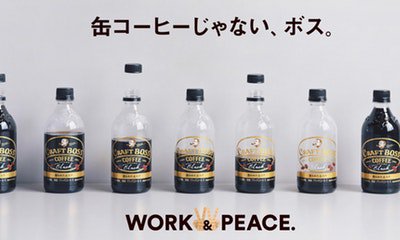
The rise of bottled coffee is no accident, it is the product of a sophisticated analysis of the customer base, but it is indeed the lucky one of the general trend: young people in Japan are moving away from canned coffee as well as beer.
Oddly enough, coffee is almost a legal drug for human beings all over the world. For many people, caffeine intake is a necessity of life. Canned coffee that is light and short enough to fit directly into a suit pocket is easier to carry than heroin syringes and can be bought by ubiquitous vending machines-drug acquisition is too troublesome. So why was it abandoned? Its original sin is embarrassing: it has been a bestseller for too long. But on the other hand, people still crave coffee, so bottled coffee takes advantage of it.
In the 1980s, with the popularity of Japanese vending machines and other factors, canned coffee began to extend its addictive claws to the Japanese and even Asian people for nearly 40 years. For young people in Japan, the canned coffee that their parents drink and drink as water every day has become a synonym for being out of date.
Coupled with the fact that it is canned iron and aluminum, it is easy to think of canned coffee-canned coffee was born to meet the purpose of "preserving coffee longer". It was originally a kind of canned coffee. But today, with the gradual decline of canned culture, canned food is considered to be an unhealthy food with preservatives and other chemical ingredients, and its long-lasting preservation no longer seems to be delicious in the hearts of young people. but a strange smell of immortality, which greatly affects the willingness to buy.
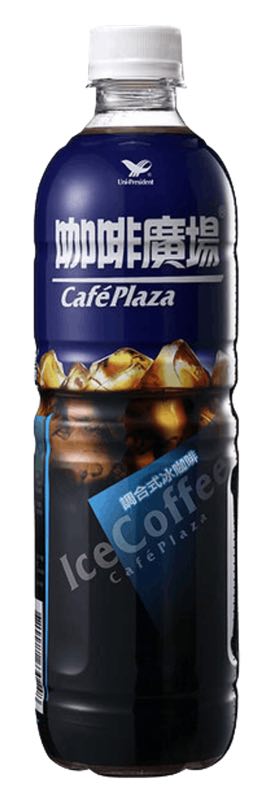
Bottled coffee is not a new idea, but it has been unpopular in Japan in the past. For the Japanese, it reveals a dark brown transparent bottle that makes it look like a small bottle of soy sauce; it cannot be easily stuffed into a briefcase, which can be a drag on the "take-and-run" speed of corporate soldiers. Who would want to buy bottled coffee? In fact, over the years, even in other parts of Asia, not many brands of bottled coffee have survived, and the plight of bottled coffee seems to be common.
But times are quietly changing, and in 2017, SUNTORY's "BOSS" coffee brand launched a large bottle of bottled coffee called "handmade BOSS" (Craft Boss), which instantly set off a hot trend.
It sold 240 million bottles in just nine months, and the more difficult female clientele in the coffee market turned out to be its main source. BOSS's move has changed the appearance of the coffee market: the original Japanese Coca-Cola "Georgia" brand dominates the coffee market, Suntory began to counterattack with BOSS, and beverage companies including UCC and Asahi also tried their best to catch up, and even Coca-Cola in Japan had to follow.
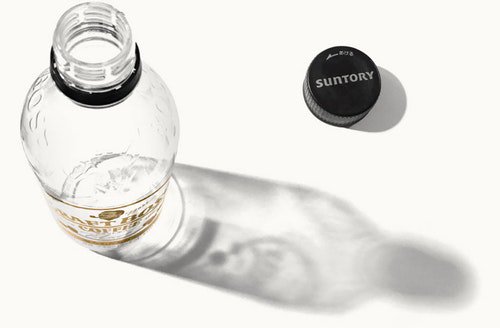
The disadvantages of bottled coffee in the past have become advantages: in the trend of health preservation, you can see that the content has become one of the guarantees of health quality-despite the fact that there seems to be no difference.
Now no one thinks that the transparent bottle of coffee looks like soy sauce, because now even soy sauce is wrapped as if it is non-invasive because of the emphasis on preservation. On the other hand, bottled coffee is fully transparent, and bottle printing does not have those various designs-by comparison, some old bottled coffee is too complicated and fancy.
This transparent design seems to shout to customers: bottled coffee is clean, unlike the canned coffee that your father likes to drink but can never see the sediment at the bottom for many years.
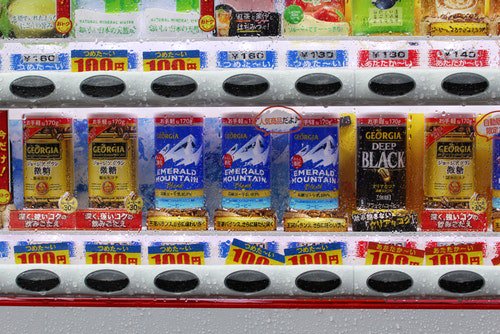
Canned coffee in Japanese street vending machines
Moreover, this generation of young office workers are no longer corporate warriors, they are more in pursuit of self-satisfaction rather than giving their lives for the enterprise. The simplicity of canned coffee is no longer very attractive-it runs away without putting it in a pocket. On the contrary, this small can of coffee is not suitable for office workers who sit at their desks for long hours and need a lot of caffeine. Big bottles can last longer for them and make them more cost-effective.
Wait, what about those businesses that still need to go out every day? Canned coffee for them who need to move a lot, this kind of light mobility should also have an incentive, right? Unfortunately, what you saw in Japanese TV dramas in the past, after the business was scolded by customers, the scene of drinking canned coffee while complaining to seniors at the vending machine (which may be Yoshiko Tsujihara or Yuki Tian Hai) is no longer there. The abominable convenience store coffee boom has become a favorite of the business: there are air conditioners, a large number of items sold in convenience stores, and machines are now making coffee. Canned coffee and vending machines, by contrast, look less attractive.
Many loyal canned coffee fans continue to fight pointlessly, saying that bottled coffee is too thin, too sweet and too "not like coffee", but this is a feature of its deliberate design. Because of its large bottle, it also seems to mean consuming too much caffeine. Bottled coffee, which is not strong to drink, weakens your doubts about caffeine poisoning. On the other hand, it can also attract customers who are afraid to drink coffee. In the past, canned coffee emphasized the refreshing function of "drinking and drinking", but the bad taste of "good medicine", such as bitter, sour and astringent, also prevented young people from falling in love with it.
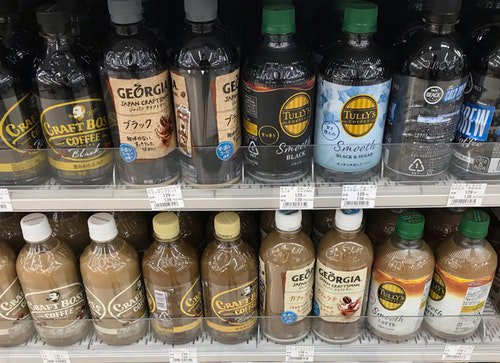
To put it simply, some people complain that bottled coffee is like "coffee water", but for it, it is a compliment.
Today's bottled coffee no longer emphasizes the origin or variety of coffee beans, but emphasizes the conditioning methods such as "cold soaking" and "hand-made", or "bean baker / barista supervised production of so-and-so coffee contest". All of this also means that bottled coffee needs to be reinvented in every way to avoid reminiscent of canned coffee. They don't even want to replace canned coffee, they want to be a brand new product, a drink that you can drink for a day, a bottle that looks beautiful on your desk, and a bottle that can keep up with the latest literary trends.
Nowadays, canned coffee is no longer the dominant coffee in the market. Bottled coffee and convenience store coffee are the top two in the market. Although bottled coffee still lacks the fresh advantage of convenience store coffee, it also has the simplicity of being easy to carry. Disregarding the bottled coffee of our predecessors instead of canned coffee, we continue to strive to satisfy every caffeine addict every morning.
END
Important Notice :
前街咖啡 FrontStreet Coffee has moved to new addredd:
FrontStreet Coffee Address: 315,Donghua East Road,GuangZhou
Tel:020 38364473
- Prev
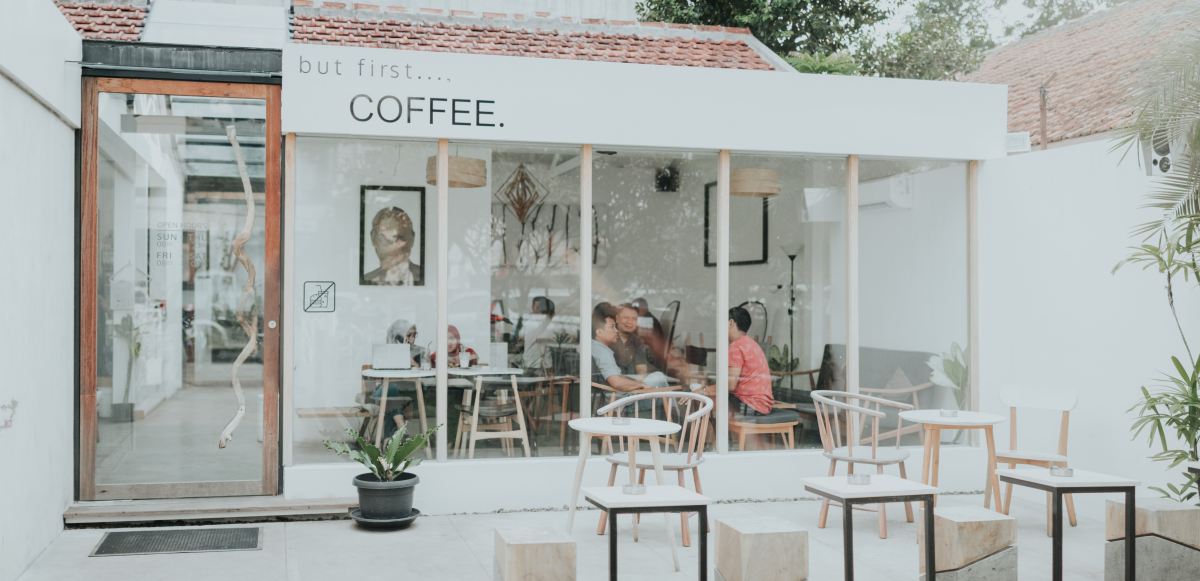
What are the feng shui taboos about opening a coffee shop? What do you think of feng shui when you open a coffee shop?
Professional coffee knowledge exchange more coffee bean information Please follow the coffee workshop (Wechat official account cafe_style) to open a coffee shop is certainly hoping to make money and get greater profits, coffee shop business is not good do not know why? In fact, fengshui will also be one of the factors that affect the source of customers, so doing business should pay more attention to store fengshui, good store fengshui can bring you good luck.
- Next
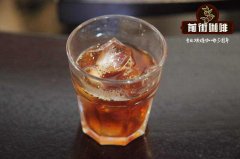
Coffee shop recommends Shanghai Xishe Coffee seesaw Cafe.
Professional coffee knowledge exchange more coffee bean information Please follow the coffee workshop (Wechat official account cafe_style) in just a few years, Seesaw coffee has spread to Beijing, Suzhou and Shenzhen, with 20 branches except Mordu's business district. Now we begin to travel abroad and participate in coffee festivals in New York, Los Angeles and other places in 2018. From 2012,
Related
- What documents do you need to go through to open a coffee shop? coffee shop coffee shop certificate processing process
- How to purchase Coffee beans in small Cafe how to choose a suitable supplier for domestic Coffee supply Company
- How to drink Starbucks Fragrance White Coffee? how to make Australian White Coffee? what Italian coffee beans are recommended?
- The Story of Flora Coffee: the name of Flora Coffee Bean and the implication of the Flowers on Florna Coffee
- How much does a cup of coffee cost? How much is the profit of a cup of coffee? What is the profit of the coffee shop in a year?
- Yunnan small Coffee, known as "fragrant Coffee", introduces the characteristics of Alpine Arabica Coffee producing areas in Yunnan, China
- 2023 latest Starbucks full menu price list how much is a cup of Starbucks coffee what is better to drink the most popular hot and cold drinks recommended
- Starbucks different kinds of Coffee Price list Starbucks menu 2023 Top Ten Best drinks in Starbucks
- Starbucks Spring praise Comprehensive matching Coffee Bean theme Story Packaging implication and taste description
- The cost of a cup of coffee latte American coffee cost price and selling price

